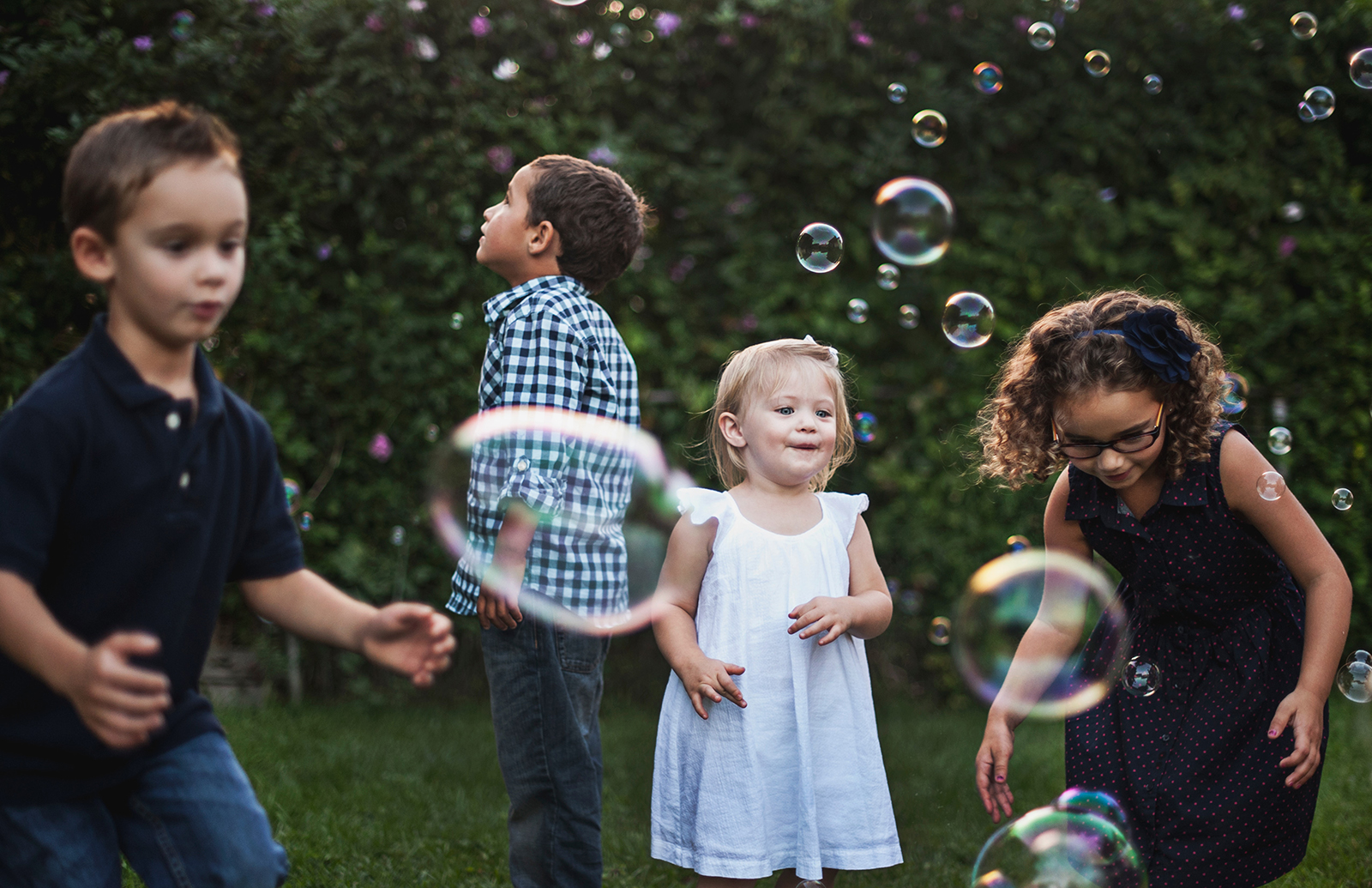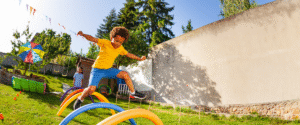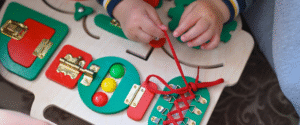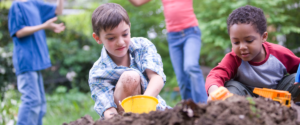
WHAT’S REALLY HAPPENING WHEN YOUR KIDS PLAY PRETEND
When I hear the words ‘pretend play’, my mind instantly goes to playing ’parents’ with my sisters, using our teddies as babies and making our little brother play the mean mum. I remember playing shops with a shoe box as the cash register, using the coins next to dad’s bed and stealing mum’s lipstick to look older as the shop attendant. My brother was obsessed with dinosaurs when he was younger, and to include him in our play, his dinosaurs often took on a lot less scarier roles, my personal favourite being our vehicles for transportation.
What I didn’t know then was that my play themes relied heavily on my own experiences within the world through books, movies, and stories as well as what my parents had shown me through their introduction of play as well as their own everyday life activities such as eating, sleeping, and bathing.
Pretend play shaped my childhood, it provided me with opportunities for creativity, imagination, emotional development, role playing, social development, increased confidence and so much more!
The Explore and Soar team recently took a course about play therapy and we had a collection realisation of the impact that pretend play can have on early development, also how pretend play can tell us more about a child’s development.
What is pretend play?
The ability to pretend in play is about understanding the meaning of what is happening beyond the literal function of toys.
In other terms, it is ‘thinking play’.
When children are playing pretend, they are playing as if something or someone is real. They are creating a situation where there is more going on that what is literally happening.
While there are many different types of play, pretend play is unique due to the specific key development skills it focuses on. These include:
- Ability to spontaneously self-initiate play
- Sequencing play actions logically
- Using objects as something else (object substitution or symbols in play),
- Engaging with a doll or teddy character outside of themselves
- Integrating their play so a clear play script is evident
- Role play and socially interacting using play.
Even having a cup of tea with a child is pretend play, when you are pretending to drink from an empty cup or blowing on the empty cup because the tea is hot.
Why is pretend play important?
Pretend play is closely linked with language development, narrative language, abstract thought, social interaction, self-regulation, emotional integration of child’s experiences and creativity.
Play sets the foundation for the development of critical social and emotional knowledge and skills. Through play, children learn how to forge connections with others, share, negotiate and resolve conflicts. Play also teaches children leadership, group interaction, and self-advocacy skills.
Play is a natural tool that children use to build their resilience and coping skills as they learn to navigate relationships and deal with social challenges. It is also a way that kids conquer their fears, for example through re-enacting fantasy heroes.
Pretend play satisfies a basic human need to express imagination, curiosity and creativity, which are key resources in a knowledge-driven world. They help us to cope, to find pleasure, and to use our imaginative and innovative powers.
Pretend play can also be mixed in with other types of play. For example, when children are running around in gross motor play , they might also be pretending they are running in the Olympics or being chased by a crocodile. Or in fine motor play, they may be threading a necklace but the ultimate goal of making the necklace is for the princess in the play scenario to wear it.
How will the team use pretend play to hit goals?
Pretend play is a tool that we occupational therapists look forward to adding into sessions and sharing with parents and caregivers to explore avenues for creativity and spontaneity.
As a team at Explore and Soar, our focus for this year is Safety for Vulnerability. Pretend play is a way that children unconsciously choose to present their emotions. It is here that we can model true self-expression and vulnerability, where there is no judgement on their chosen actions or themes as they are showing us their honest imaginations. Supporting this creativity is crucial to building a trusting and joyous relationship.
General ideas for pretend play.
- Creating your own cubby house,
- placing a variety of objects into a tub such as kitchen utensils, flowers, sticks and inviting your child to explore them,
- Narrating and asking questions how they feel, the colour, shape and size. For older children this could look like discussing what each object could represent in a play scene,
- Pretend objects can be different things.
- For example, boxes can be cards, beds, tables, oven, house and so on. Cloth can be grass, ocean, deserts and snow,
- For example, boxes can be cards, beds, tables, oven, house and so on. Cloth can be grass, ocean, deserts and snow,
- Create spaces where you can join your child in role play.
- For example, different rooms in the house could represent different everyday settings such as a shop or petrol stations, where the children have to use objects in their rooms to represent that,
- For example, different rooms in the house could represent different everyday settings such as a shop or petrol stations, where the children have to use objects in their rooms to represent that,
- Play Dress ups,
- Play mums and dad’s,
- Have a tea party,
- Play Cars, trucks, Dinosaurs adventures,
- On a smaller scale, try creating meaningful movements with figurines or small toys where the child can manipulate the toys and have their characters interact with each other.
Ask our Explore and Soar team for more specific activities or ideas on age-appropriate play themes and ideas to help start playing with your children today!
Until next time,
Molly
ORIGINALLY PUBLISHED APRIL 5, 2023







